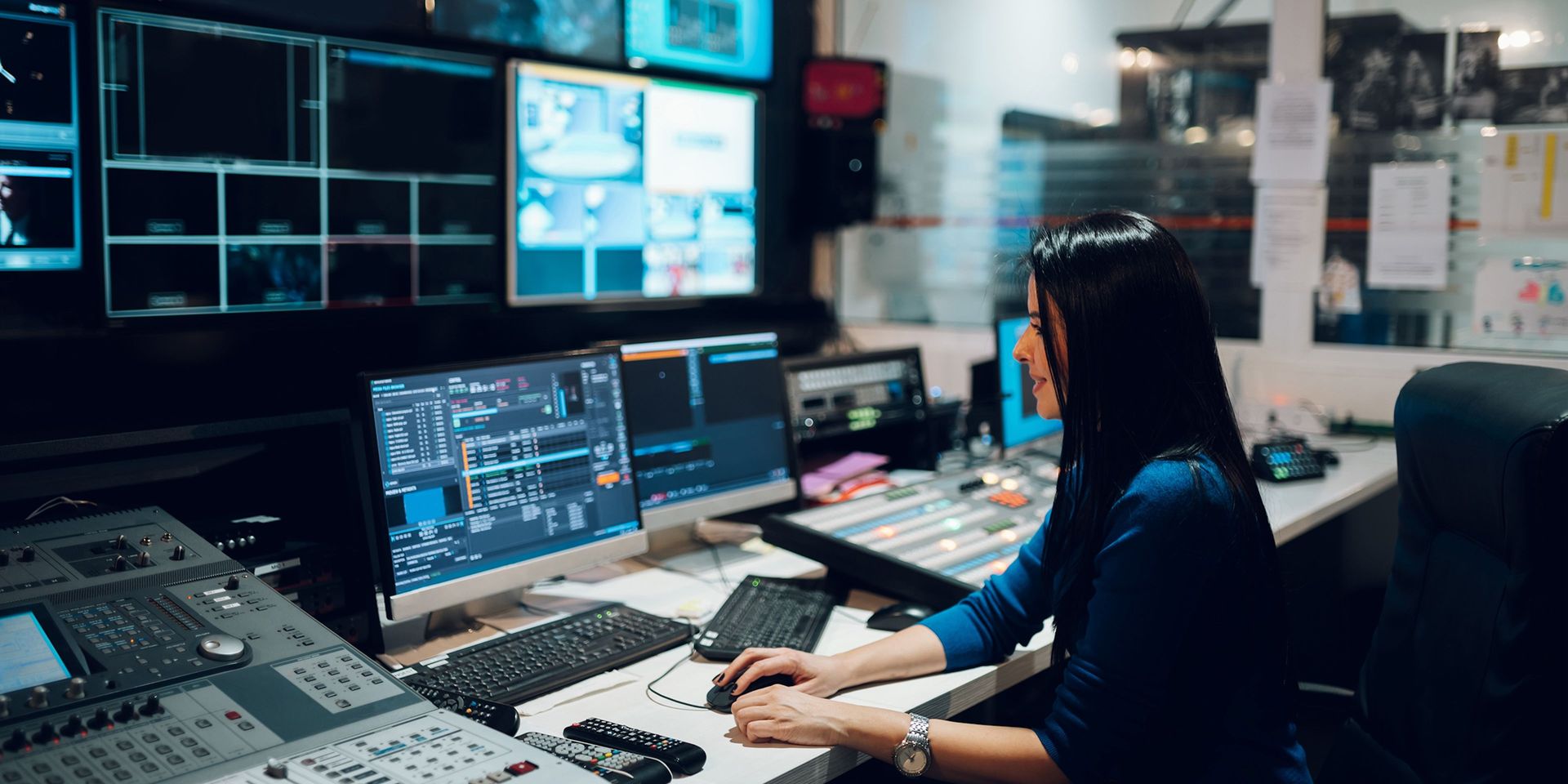Being a video manager means mastering the art of turning an idea into an image. This profession demands real technical versatility: knowing how to install a projector, adjust a camera, synchronize multiple screens, or fix a problem in the middle of a live recording.
Every setup requires precision, method, and a solid understanding of control room tools.
Curiosity and technological awareness are also part of everyday life. Video formats evolve constantly, software changes, and broadcast methods diversify. A good video manager must stay alert, test new equipment, and keep learning continuously.
There are several ways to train for this career. BTS Métiers de l’audiovisuel (specializing in operations, image, or production management) and** Diplômes des Métiers du Spectacle** provide excellent foundations. Others pursue professional certifications such as the RNCP title “Régisseur vidéo-image,” which is well recognized in the industry. But most of the real learning happens in the field, through internships, temporary assignments, or live events, where you develop the reactivity the job requires.
Salary and working conditions
The salary of a video manager varies greatly depending on experience, the type of event, and employment status. At the start of their career, a technician can expect between €1,900 and €2,300 gross per month, while an experienced or lead video manager can earn €3,000 to €3,800, or even more on major productions and large-scale events. Pay may also be calculated per day for freelance or intermittent workers, often between €150 and €250 gross, depending on the technical complexity.
In terms of schedule, the role requires strong availability: shoots, concerts, trade shows, or festivals often involve irregular hours, frequent travel, and overnight setups. The days are intense, but the satisfaction of seeing a perfectly synchronized projection or immersive mapping makes it all worthwhile.
The video manager works in a dynamic world where creativity meets technology. Between hardware innovations, the diversity of projects, and the energy of technical teams, every mission brings a new experience. It’s a profession of passion, made for those who love tangible challenges and precision work.
Advantages and drawbacks of being a video manager
The job attracts people who enjoy hands-on work, technology, and the performing arts. Every project is unique, one day a concert, the next a TV show or an international conference. This diversity keeps the workday stimulating, offering the joy of seeing your efforts come to life in front of an audience. The human side is another highlight: collaborating with technicians, artists, and organizers from all backgrounds. With the rise of hybrid events and streaming, job opportunities remain strong, especially in temporary or freelance work.
Of course, there are challenges. A video manager must adapt to irregular hours, late-night setups, and early-morning teardowns. The role demands physical endurance and constant attention to detail to avoid technical issues. Frequent travel, sometimes over several days, and the pressure of live performance leave little room for mistakes. It’s a demanding but deeply rewarding career, where endurance and precision truly make the difference.



